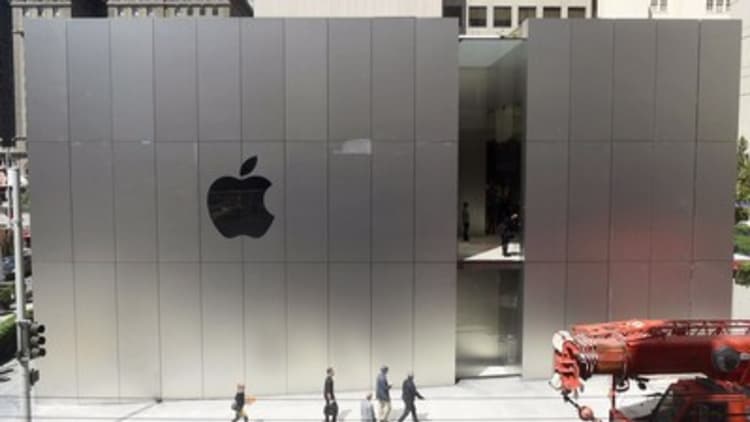
Apple's decision to drop Imagination Technologies as a supplier might seem like a ruthless move, but it underlines the technology giant's ongoing push to have more control over hardware which will have implications on its margins and ability to own new areas like augmented reality (AR) in the future.
On Monday, Apple said it would be "reducing its future reliance on Imagination's technology" over the next 15 to 24 months. Imagination, a U.K. firm that designs graphics processing units (GPU), is a key part of Apple's products like the iPhone.
The U.S. technology giant said it would be developing its own independent graphics design. Apple's move is hardly surprising given its recent history of trying to bring hardware design in house.
"One of Apple's successes has been built on the fact they tightly control all elements of hardware, software and services, it's a unique set of assets," Ben Wood, chief of research at CCS Insight, told CNBC by phone.
"The performance advantages to owning the whole hardware stack are substantial."
Protecting 'super-normal' margins
Apple's relationship with suppliers hasn't always been easy and has sometimes been aimed at driving the cost of components down. In January, Apple filed a lawsuit against chipmaker Qualcomm accusing it of charging royalties for technologies "they have nothing to do with".
Apple claimed Qualcomm was overcharging it for certain technologies. Analysts at Jeffries said in the case of Imagination, Apple could be playing the role of "bargaining bully" by walking away from the company in order to get the lowest royalty rate.
CNBC did not receive a comment from Apple when it reached out regarding the Jeffries note on Tuesday.
At the same time, Apple has been developing its own technology internally. In the iPhone 7 released last year, Apple showed off the A10 processor, a chipset it designed itself and not for the first time. Apple is also looking to move away from reliance on rivals too. The U.S. tech giant has reportedly ordered 70 million organic light-emitting diode (OLED) panels from Samsung for its upcoming anniversary edition iPhone. Given that Samsung has around a 90 percent share of the OLED market, Apple is unlikely to have had much room to negotiate on price, analysts said.

Designing and manufacturing large parts of the phone such as display, battery and chips is something Samsung has been traditionally strong at. Apple is trying to do the same to get the best products.
Beyond Apple's desire to create the best products as it battles rivals Samsung and Huawei, is the Cupertino titan's wish to maintain its envy-inducing margins but also take a lead in new technology.
Apple reported a gross margin of 38.5 percent in its December quarter. Owning more of the supply chain could cut costs, reduce the amount of money one product costs to makes, and help maintain margins as other manufactures get squeezed.
"It is exceptionally rare for any consumer electronic company's margin to be above 10 percent. So Apple's margins are super-normal and they seek all means to protect that," Neil Campling, head of global technology, media, telecom research at Northern Trust Capital Markets, told CNBC by phone on Wednesday.
Bid for control of the future
The spat with Imagination was particular interesting because the U.K. firm makes GPUs which is seen as a key component to many future areas such as AR, driverless cars and artificial intelligence (AI), technologies that Apple chief executive Tim Cook has spoken enthusiastically about.
Campling said the decision to ditch Imagination could be because Apple thought the company wasn't progressing fast enough to what was being demanded.
But Apple's ability to create its own technology in this area is still up in the air. Imagination said it doubts that Apple could design a brand new GPU without infringing intellectual property (IP) rights. Apple did not comment on the assertion when the story was reported earlier this week. Jeffries in a note on Tuesday even suggested that Apple might think about buying Imagination.
If Apple is able to create its own GPU, however, it could be a big boost for any future technologies it wants to invest in, giving it tighter control over the way it integrates its hardware and software to create unique experiences.
"GPU is about everything Apple does in the future. If it moves into AR, driverless cars, AI, all of those require GPU, so it's Apple taking control of their destiny in that space. What remains to be seen, is that, will they have the ability to do it by themselves or need IP from Imagination," Wood told CNBC.





